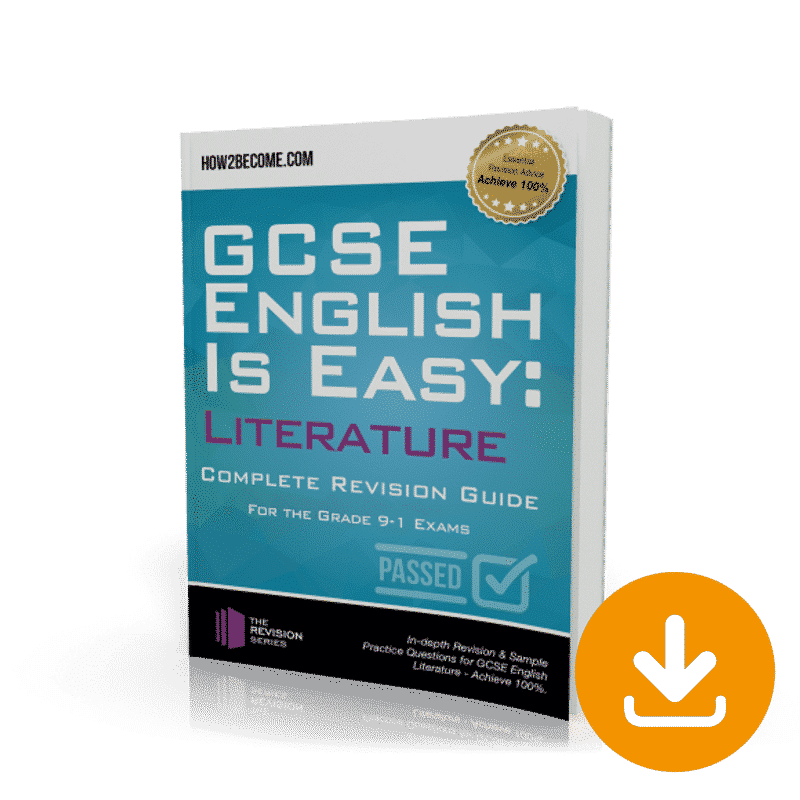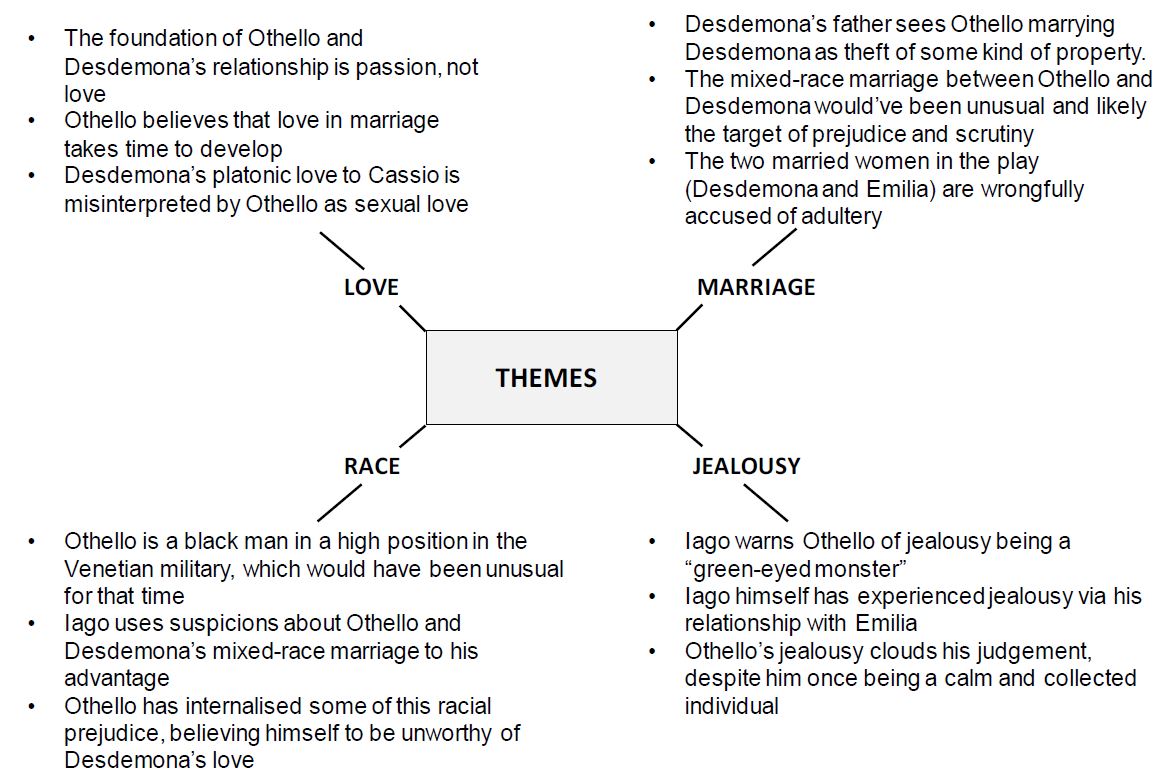GCSE ENGLISH LITERATURE
Complete Revision Guide For The Grade 9-1 Exams
Welcome to your guide GCSE English Literature – the complete guide to complement your GCSE Literature learning. This guide can be used alongside the new national curriculum which ensures you are fully prepared for your GCSE English exams.
Assessment Objectives
AO1 = To read, understand, and respond to literary texts. Students should be able to demonstrate a critical style in their writing, and develop an informed personal response. Students are also required to use contextual references, including quotations in order to support their interpretation.
AO2 = To analyse the language, form, and structure used by an author and analyse the meaning and context. To ensure relevant terminology is used throughout their assessment.
FREE BONUS
When you order you will receive the following free bonus:
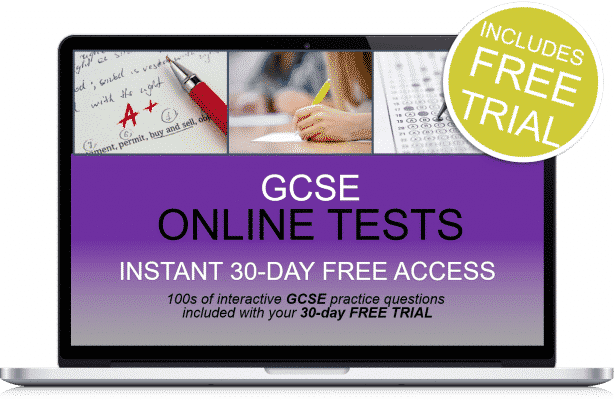
Plus 30-days FREE ACCESS to the GCSE online testing suite. Thereafter, just £5.95 per month. No minimum term. You may cancel anytime. Cancel before the 30-days are up and you will not be charged. Online suite access on PC, MAC and mobile devices.
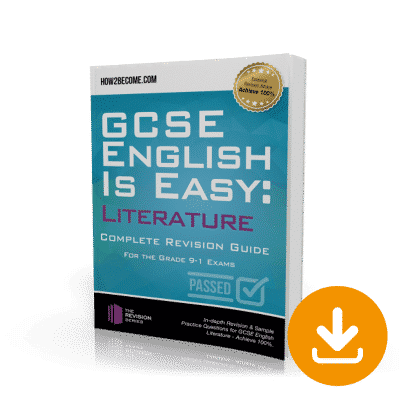
✓ 30-Day Money-back Guarantee
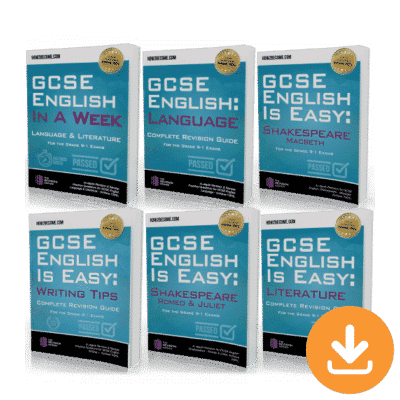
✓ 30-Day Money-back Guarantee
Did you know? All orders with How2Become are protected by our 30-day money-back guarantee. What ever the reason…or no reason at all…you can have your money back if this resource isn’t right for you (see our terms for full details).

